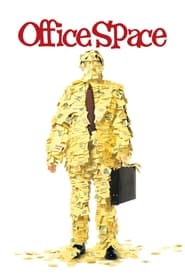This was one of those films I watched a lot in the 2000s, chiefly because it was one of the few films I had downloaded at a LAN party: lacking an internet connection at home, I would basically have little choice but to watch the same 10 or so films on repeat. Anyway, less a "fucking A" than a solid B+, Office Space mostly holds up after not watching it for a while. I won't go to bat for its misogyny and homophobia, although I will colour its excessive use of jokes hinging on prison sexual assault with the (overly generous) observation that it often seems to be yet another facet of the characters' myriad insecurities and, frankly, loserdom. Still, I did like how braces/suspenders are deployed as a contrasting symbol of being a corporate jackass, although this (and Lumbergh's contrast collars and cuffs) also highlights that the film, like American Pyscho (2000), was originally intended as a satire of the 1980s rather than of the current moment. Speaking of signifiers, it's pretty telling that you never actually see Lumbergh in his office (incidentally, you could write a substantial essay on the class politics and semiotics of this movie). Unqualified love for the tech manuals in the background, though — I've never laughed at seeing "Borland dBase" on the spine of a book before, and it's especially funny when you realise that this is a book that Peter chose to have at his home. Damn, it feels good to be gangster.
Anyway, just like an actual day at the office drags the afternoon, Office Space drags a little in its second half as well. But it also seems somewhat necessary to properly establish that Peter is, indeed, "a very bad person". Other comedies might have used a cheap trick here to quickly show him being actually bad, but this would later lead to a false sense of realisation, revelation, confession and catharsis for the character. Here, it almost feels earned, at some loss to the near-perfect vibe of the first 45 minutes.

